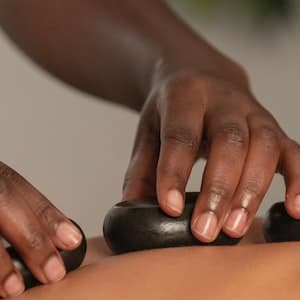three-martini lunch: Idiom Meaning and Origin
What does ‘three-martini lunch’ mean?
The idiom "three-martini lunch" refers to a midday meal where alcoholic drinks, typically martinis, are consumed excessively, often in a work or business context. It symbolizes a leisurely and indulgent lifestyle, although it may also connote excessive consumption or lack of productivity.

Idiom Explorer
The idiom "watering hole" refers to a place, often a bar or pub, where people gather to socialize and have drinks. It symbolizes a meeting point or social hub where individuals come together to relax and enjoy each other's company.
The idiom "top-heavy with drink" means someone is heavily intoxicated or drunk. It implies that the person has consumed a large amount of alcohol and is now struggling to maintain their balance or control over their actions.
What is the meaning of the idiom "top-heavy with drink"? Let's dive right into the facts we know about this idiom.
An idiom that refers to taking a break or having a period of rest from work or other responsibilities.
An idiom meaning to consume a large quantity of alcohol, usually resulting in getting drunk or excessively intoxicated.
Tie one on is a common idiom in American English that refers to getting drunk or excessively intoxicated. The phrase is informal and colloquial.
The idiom "three squares" refers to the act of having three proper and fulfilling meals in a day. It emphasizes the importance of regular and nourishing eating habits.
Three squares is an idiom that is commonly used in American English. It refers to the three meals eaten in a day, namely breakfast, lunch, and dinner. This phrase has its origins in the concept of dividing a day into three equal parts and allocating one meal for each part.
The idiom "table talk" refers to casual conversation that happens during a meal, often discussing lighthearted or non-serious topics. It can also imply gossip or discussions about controversial subjects.
The idiom "prop up the bar" means to stand or sit at a bar for an extended period of time, often while drinking alcohol. It implies a sense of leisure or indulgence.
Decoding Tradition
The idiom "three-martini lunch" refers to a social or business meal where alcoholic beverages, specifically martinis, are consumed in excessive quantities. This term gained popularity in the mid-20th century and is mostly associated with the United States. It symbolizes a leisurely and indulgent way of conducting business or socializing.
The phrase originated from the practice of some businessmen in the mid-20th century who would enjoy three martinis during their lunch break. It became well-known in the 1950s and 1960s, a time when success in business and a glamorous lifestyle were highly valued. The idiom captures the image of a lavish lunch break, where having multiple martinis was seen as a symbol of status and accomplishment.
During this period, the three-martini lunch was especially prevalent in the business and advertising industries. It served as a way for businessmen to build relationships, make deals, and expand their networks. The three-martini lunch became a prominent feature in popular culture, frequently appearing in movies, books, and television shows to represent a particular lifestyle and social status.
However, the use of this idiom declined in the 1970s and 1980s. This was due in part to changing cultural norms, an increased awareness of the health risks associated with alcohol consumption, and stricter regulations regarding alcohol in the workplace. Despite its decline, the term still holds cultural significance and is often used to evoke a specific era or depict a certain type of extravagant lifestyle.
Today, the phrase "three-martini lunch" is commonly used in a more figurative sense. It is used to refer to any lavish or excessive expense or indulgence, not just limited to the consumption of alcohol during lunch. The idiom has become a metaphor for excess and extravagance in various contexts.
The three-martini lunch may no longer be as prevalent as it once was, but its impact on popular culture is undeniable. Today, it is used to symbolize a bygone era and the allure of a luxurious lifestyle. The idiom serves as a cultural reference point, evoking a sense of nostalgia for a time when indulgence and leisure were highly valued.
The idiom "three-martini lunch" has several related idioms that capture similar meanings and themes. One such idiom is "tie one on." This phrase is used to describe someone who consumes alcohol excessively, often to the point of becoming intoxicated. It can refer to any scenario where excessive drinking is involved, not just limited to lunchtime or business settings.
Another related idiom is "three squares." This phrase is used to describe a complete meal, typically consisting of breakfast, lunch, and dinner. It is often associated with fulfilling basic nutritional needs and maintaining a balanced diet. While the three-martini lunch deviates from the concept of a balanced meal, the idiom "three squares" highlights the importance of regular, nutritious eating habits.
"hit the bottle" is another related idiom that has connections to the three-martini lunch. This phrase is used to describe someone who consumes alcohol excessively or who turns to alcohol as a coping mechanism. It can suggest a person's reliance on alcohol to escape from stress, boredom, or other negative emotions. While the three-martini lunch may have been seen as a way to relax and socialize, the idiom "hit the bottle" adds a darker undertone by suggesting the potential for alcohol abuse or dependence.
Example usage
Examples of how the idiom "three-martini lunch" can be used in a sentence:
- After a long day of negotiations, the executives decided to have a three-martini lunch to celebrate their successful deal.
- During the Mad Men era, it was common for businesspeople to indulge in a three-martini lunch as a way to network and build relationships.
- Despite the growing trend of healthier lifestyles, some professionals still enjoy the occasional three-martini lunch as a way to unwind and socialize with colleagues.
More "Food" idioms

